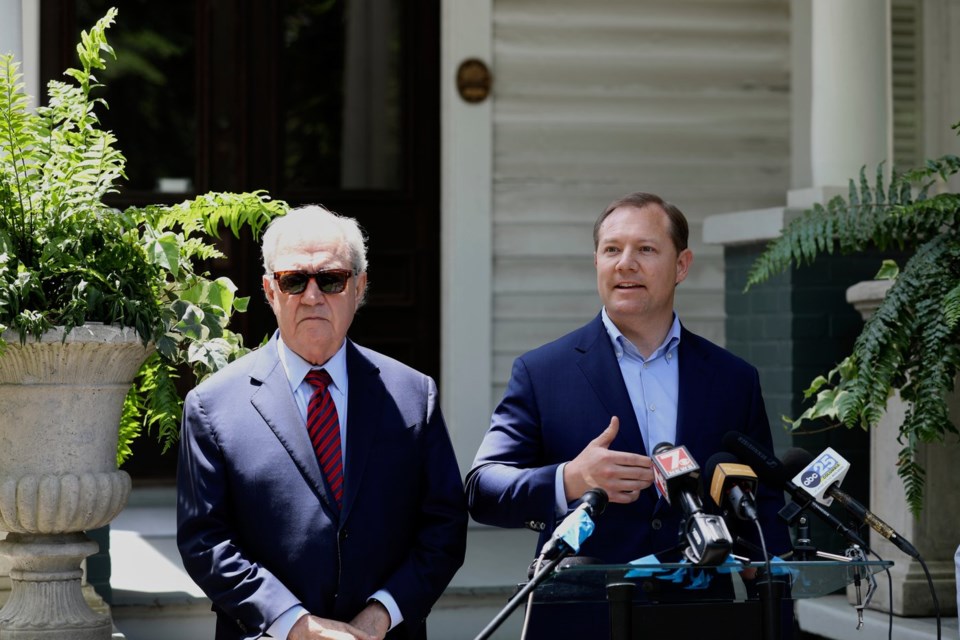COLUMBIA, S.C. (AP) — All money paid to South Carolina lawmakers while they aren't in session has been stopped by the state Supreme Court as the justices sort through a lawsuit from one of their members, alleging legislators improperly gave themselves an $18,000-a-year raise.
The raise is what is called “in-district compensation” — money set aside for legislative duties that has few limits on how it can be spent and requires no receipts or other documentation.
Lawmakers voted, in the budget set to start July 1, to increase it from $1,000 a month to $2,500 a month for all 46 senators and 124 House members.
Republican Sen. Wes Climer sued his colleagues, saying the raise violates the state constitution, which bans the legislature from increasing their per diem during their terms. House members would get 18 months of the extra money and senators would get more than three years of payments before facing reelection.
Lawyers for the House and Senate disagree. They said the money isn't a “per diem” considered part of legislators' salaries, but a reimbursement for expenses, even though there are no reporting requirements.
They also said the money isn't an extra cost to taxpayers because it came out of funds already set aside to operate both chambers.
The compensation is usually paid monthly, but neither the $1,000 that has been paid for decades nor the $1,500 raise will land in lawmakers’ direct deposits in July since the state Supreme Court decided Wednesday to suspend the budget item containing the money until it rules.
The justices set out a schedule with a deadline in early September for the final legal filings, meaning lawmakers won't get paid for at least two months.
If the justices rule the raise is legal, then lawmakers would get back pay for both the raise and their regular pay.
In South Carolina, the Supreme Court justices are elected by the Legislature.
Along with the in-district compensation, lawmakers also get a salary of $10,400 annually, paid in a lump sum that has not changed since 1990. In addition, they get money for meals, mileage to drive to the state capital in Columbia and hotel rooms while in session.
Legislators are considered part-time because South Carolina’s General Assembly meets three days a week from January to May, and outside of the in-district compensation, they don't receive any money when not in session.
The raise was proposed by Republican Sen. Shane Martin late in the budget process in a proviso, which is a one-year order on how to spend money. The monthly stipend hadn’t changed in about 30 years, and Martin said the increase was needed to offset inflation. It is meant to pay for computers or other equipment, travel to events in their districts, or holding town halls.
More than 40 of the state's 170 General Assembly members have refused the increase. All are Republicans.
Jeffrey Collins, The Associated Press



